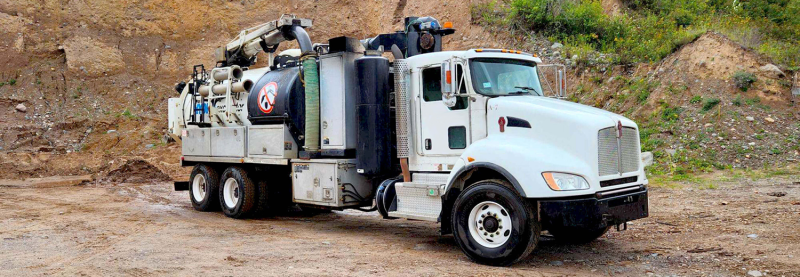Exploring The World Of Hydro Excavation In The State Of Nevada
The industry is growing rapidly.
Posted 04:07 October 21, 2024
Last Updated 04:07 October 21, 2024

One of the main advantages of hydro excavation in Nevada is its ability to prevent damage to underground infrastructure, a concern that is growing as cities expand and utility networks become more intricate. In dense urban areas, the ground is filled with utility lines, cables, and pipes essential to daily life and business operations. Traditional excavation methods, which rely on mechanical tools, can easily strike and damage these utilities, causing costly repairs, service interruptions, and safety hazards. Hydro excavation, by contrast, uses non-destructive water pressure to expose these lines safely. This precision helps construction companies adhere to Nevada’s stringent safety regulations while avoiding the high costs associated with accidental utility strikes. Additionally, hydro excavation aligns with Nevada’s regulatory framework by offering a safer excavation option for contractors and utility workers.
Environmental considerations also play a significant role in the adoption of hydro excavation in Nevada. The state’s arid desert climate is particularly sensitive to issues like dust, soil erosion, and contamination from waste. Unlike traditional digging methods, hydro excavation minimizes dust by using water to control airborne particles, which is crucial for air quality, particularly in urban centers. Moreover, hydro excavation creates a slurry of soil and water that can be easily contained and disposed of according to state environmental regulations, reducing the likelihood of contamination. In a state where water and land conservation are priorities, the reduced impact of hydro excavation on the surrounding environment makes it an appealing choice for sustainable construction practices. This approach aligns with Nevada’s focus on eco-friendly policies and adds value to construction companies committed to minimizing their ecological footprint.
The efficiency of hydro excavation also appeals to Nevada’s construction sector, where projects often operate under tight schedules and budget constraints. Hydro excavation is generally faster and more precise than traditional methods, allowing projects to progress more smoothly and on time. This efficiency is particularly beneficial in Nevada’s hard and rocky soils, where traditional excavation can be both time-consuming and labor-intensive. Hydro excavation allows for quick access to buried infrastructure without the need for extensive digging or soil removal, making it a preferred method for time-sensitive projects in both urban and rural areas. For contractors, this translates to significant cost savings in labor and project duration, which can be a major competitive advantage in Nevada’s construction industry.
The versatility of hydro excavation further supports its growing popularity across Nevada. This method is effective in a wide range of environments, from crowded urban areas to remote desert locations, making it suitable for the diverse range of projects undertaken throughout the state. Hydro excavation trucks are equipped to handle various soil types and excavation depths, allowing them to operate efficiently in both residential and commercial projects. As Nevada’s cities continue to expand and infrastructure needs grow, the adaptability of hydro excavation enables contractors to tackle projects with varying levels of complexity and environmental sensitivity. This flexibility has established hydro excavation as a valuable tool for Nevada’s evolving infrastructure, promising to meet the state’s development needs while addressing its environmental and safety standards. In this way, hydro excavation is set to play a lasting role in Nevada’s construction landscape, contributing to the state’s growth in a responsible and efficient manner.
If you'd like to discuss an upcoming excavation project, contract the hydroexcavation experts here at Hole Hogz. We service Las Vegas, Henderson, Boulder City, and most parts of Clark County Nevada.
